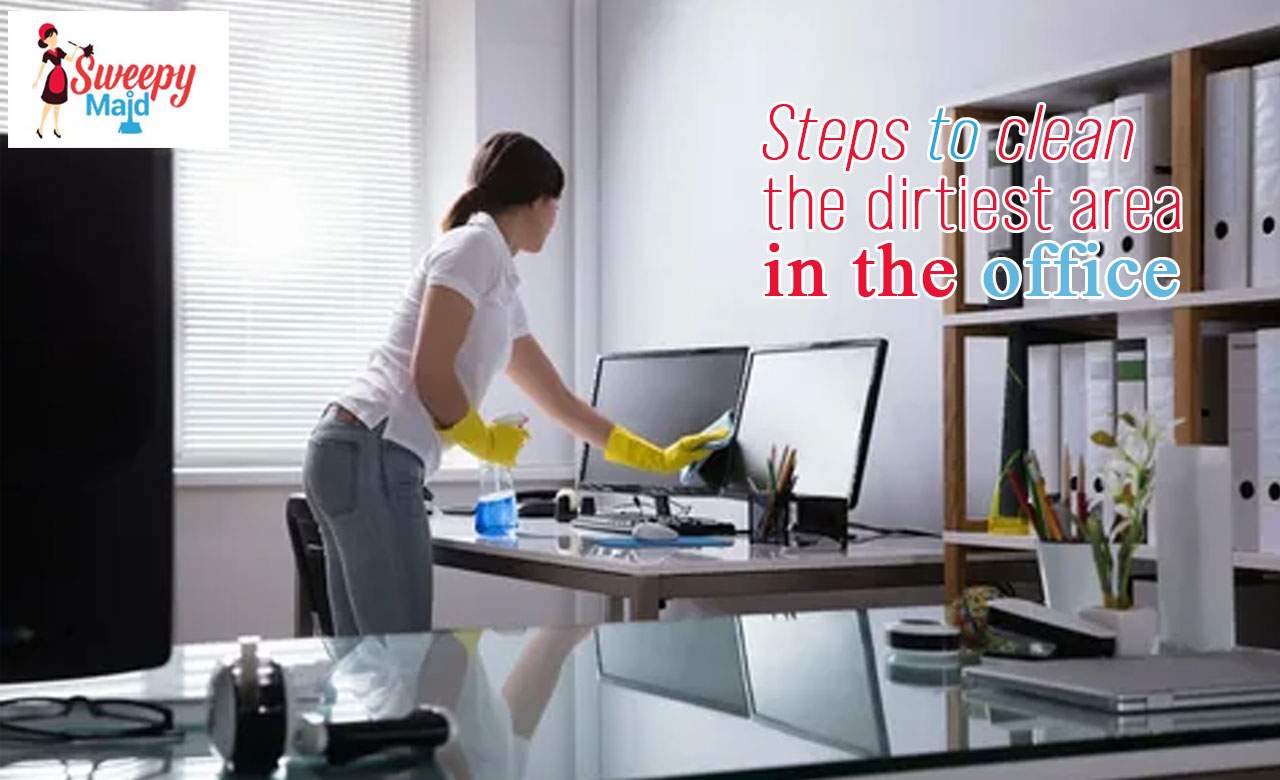![]()
Employees share most office spaces, including workstations, restrooms, conference rooms, and break rooms. Regretfully, people frequently spread bacteria, viruses, and other microbes when using these areas. This results in allergies, sickness, and eventually, missed work. It is really difficult to find cleaners for house cleaning in Victoria. There are several reasons why people prefer to hire a cleaner.
Which are the dirtiest areas in the office?
The following are some typical locations in an office setting that are prone to gathering dust and bacteria:
- Keyboards and computer mice: Computer mice and keyboards are often touched and can be very contaminated, especially if they are not cleaned on a regular basis.
- Office phones: Office phones are subject to frequent handling throughout the day, much like keyboards and computer mice, which can accumulate dirt and bacteria.
- Desktops and Work Surfaces: Over time, dirt, dust, and bacteria can accumulate on any surface where people touch or place items.
- Office kitchen or breakroom: If not cleaned regularly, spaces where food is made or consumed can easily become havens for bacteria. This includes microwaves, refrigerators, sinks, and countertops.
- Common Spaces and Equipment: Spaces like conference rooms, meeting tables, printers, copiers, and other office equipment are frequently used by numerous individuals and do not require regular cleaning.
- Flooring: Dirt, dust, and debris can accumulate on floors, particularly in places with heavy traffic. Carpets can harbor bacteria and allergies, particularly if not routinely swept and cleaned.
Different ways to clean the dirtiest areas in the office.
It takes a mix of proper cleaning methods and supplies to thoroughly clean the office’s dirty spots. The following are several approaches to cleaning these areas:
Mouse and keyboard for computers:
- To remove dust and dirt from between keys, use compressed air.
- Use disinfectant wipes or a towel soaked in isopropyl alcohol to clean surfaces.
- Use a cotton swab or a small brush to clean spots that are difficult to reach.
Workplace telephones
- Use isopropyl alcohol-dampened cloths or disinfectant wipes to clean phone surfaces.
- The receiver and keypad areas should be given special attention because they are often handled.
- To clean the tiny nooks and crannies surrounding buttons, use cotton swabs.
Desk and surfaces for work:
- Remove any clutter from the surfaces and clean them with an all-purpose cleaner or a light detergent.
- Clean surfaces with an appropriate disinfectant spray or wipes, paying special attention to areas that are touched often.
- When cleaning, use microfiber cloths to avoid streaks.
Kitchen or break room in the office:
- Use a vinegar and water solution or a commercial kitchen cleaner to sanitize counters, tables, and other surfaces.
- Clean kitchen appliances, dishes, and utensils frequently with hot, soapy water.
- Use disinfectant wipes or spray to clean and sanitize refrigerator handles, sinks, and faucets.
Shared spaces and equipment sharing:
- Make sure to clean communal surfaces such as tables and chairs by using cleaning solutions or disinfectant wipes.
- Shared devices like copiers, fax machines, and printers should be cleaned and sanitized, with particular attention paid to touch screens and buttons.
Surface:
- To get rid of dirt and debris, hoover carpets and rugs regularly.
- Hard flooring surfaces can be cleaned with a proper cleaning solution using a mop or steam cleaner.
For thorough cleaning, consider hiring a professional carpet cleaner or floor waxer regularly to adhere to product instructions and be safe when utilizing cleaning supplies and equipment safety measures. To further help maintain a clean office atmosphere sweepy maids for hiring Cleaners in Victoria.

